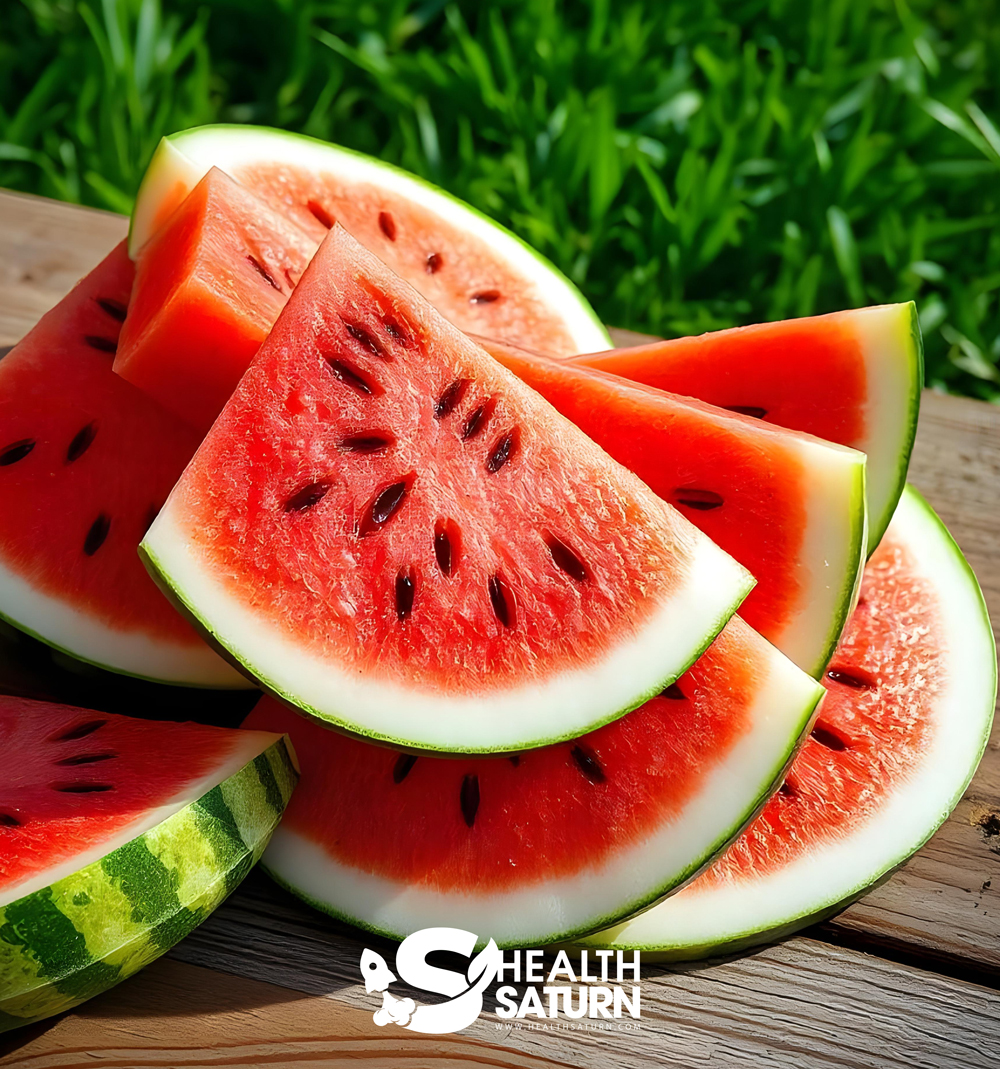provides numerous health benefits. Packed with water, vitamins, and antioxidants, watermelon supports everything from skin health to heart wellness. In this article, we’ll explore the top health benefits of watermelon and why you should include it in your diet regularly.
Nutritional Overview of Watermelon

Watermelon is about 90% water, making it an excellent choice for staying hydrated. It’s rich in vitamins A, C, and B6, along with minerals like potassium. It’s also a great source of antioxidants, especially lycopene, which provides multiple health benefits. Despite its sweetness, watermelon is low in calories, making it a smart choice for weight management.
Hydration Benefits
Staying hydrated is crucial for maintaining bodily functions, and watermelon is a great way to do this due to its high water content. It also contains electrolytes like potassium, which help balance fluids and keep muscles and nerves working properly.
Heart Health
Watermelon contains lycopene, an antioxidant known for promoting heart health by reducing inflammation and oxidative stress. Potassium and magnesium in watermelon also contribute to maintaining healthy blood pressure levels. Additionally, watermelon has an amino acid called citrulline, which improves blood flow and supports cardiovascular health.
Benefits for Skin and Hair
Watermelon is a good source of vitamin C, which plays a key role in collagen production, essential for skin elasticity and health. The high water content also keeps skin hydrated, reducing dryness and giving it a natural glow. The antioxidants in watermelon, such as lycopene, also protect against skin damage and signs of aging.
Supports Weight Loss and Digestion
Watermelon is low in calories and high in fiber, which helps keep you full longer and supports weight loss. The fiber also promotes healthy digestion and regular bowel movements, which are essential for overall gut health.
Exercise Recovery and Muscle Soreness
Citrulline in watermelon may help reduce muscle soreness after exercise by improving blood flow and aiding in the removal of lactic acid. Drinking watermelon juice after a workout can also serve as a natural sports drink, providing hydration and nutrients for faster recovery.
Eye Health

Watermelon contains beta-carotene, which converts to vitamin A, essential for good vision. Lycopene also helps protect the eyes against age-related conditions, such as macular degeneration.
Anti-Inflammatory Properties
The antioxidants and phytonutrients in watermelon have anti-inflammatory properties, which can reduce inflammation in the body. This makes it beneficial for people with chronic inflammatory conditions like arthritis.
Cancer Prevention Potential
Lycopene has been linked to a reduced risk of certain types of cancer, including prostate and breast cancer. Vitamin C also helps neutralize free radicals, which can contribute to cancer development.
Benefits During Pregnancy
Best Ways to Enjoy Watermelon
Watermelon comes in different varieties, such as seedless, picnic, icebox, and yellow/orange, each offering a unique flavor. Here are some ideas for enjoying watermelon:
Fresh Slices: Enjoy it plain as a healthy, refreshing snack.
Smoothies and Juices: Blend with lime for a cooling summer drink.
Salads: Combine with feta cheese and mint for a flavorful salad.
Grilled Watermelon: Grilling enhances the natural sweetness and adds a smoky flavor.
Potential Risks and Precautions
While watermelon is generally safe, overconsumption can cause digestive issues like bloating or diarrhea. Some people may also be allergic, leading to symptoms like itching or swelling. If you are on blood pressure medications, be mindful of watermelon’s potassium content.
Conclusion
Watermelon is a versatile, hydrating, and nutrient-rich fruit with many health benefits. From improving heart health to keeping your skin radiant, it offers a delicious way to support your overall wellness. Include watermelon in your diet for a refreshing boost to your health and enjoy its many positive effects on your body.


